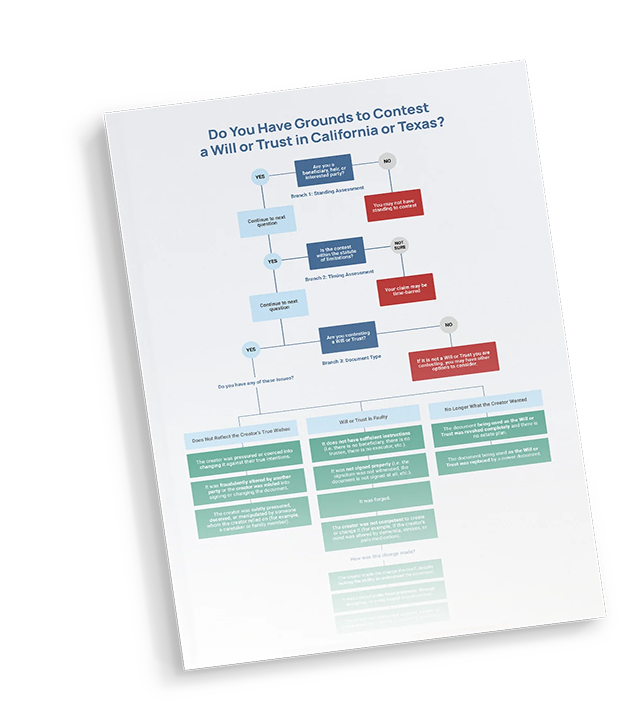What is a spousal lifetime access trust or SLAT?
A Spousal Lifetime Access Trust (also known as a “SLAT”) is an irrevocable trust where one spouse is the grantor, and the other spouse is the beneficiary. The grantor spouse will execute the trust, and the beneficiary spouse will have limited access to the trust assets. It’s essential that the beneficiary spouse’s access be limited to protect the assets from creditors and estate taxes.
The benefit of a SLAT is that it allows married couples to take advantage of the high gift tax exemption available to spouses while also providing continued access to the trust assets. Each spouse can establish a SLAT for the other’s benefit, but the trusts must be sufficiently different from each other. Under the “reciprocal trust doctrine,” if the trusts are too similar, the trust assets can be included in the estate and subject to estate taxes.
In addition to providing income to spouses, SLATs can provide income to the grantor’s descendants. If you are interested in creating a SLAT, you should seek help from a knowledgeable estate attorney to ensure the trust document meets your particular needs.
Ready to Get Started?
Our probate attorneys focus on all types of trust and estate disputes. Whether you’re a trustee, executor, heir, or beneficiary we can help you resolve your probate dispute.
Can a SLAT be contested or disputed?
Yes, a SLAT can be contested or disputed if you have a recognized legal basis to argue that the trust is not valid. Common grounds for contesting a trust include:
Undue Influence or Duress
If the SLAT was created as a result of undue influence or duress by a third party, you can contest the trust’s validity. Undue influence occurs when the grantor does not create the trust of their own free will, but instead is overwhelmed by the extreme influence of another person to create the trust or to name a certain individual as a beneficiary. Duress is a type of undue influence where the influencer uses threats of force or violence to bend the grantor to their will. Both undue influence and duress can invalidate a trust.
To successfully challenge a trust for undue influence or duress, the grantor must be under so much pressure that their free will is overwhelmed and the trust document represents what the influencer wants instead of what the grantor wants.
Incapacity
For a SLAT to be legally enforceable, the grantor must have been “of sound mind” when the trust was created. The legal standard for mental capacity is very low, and simply requires that the grantor understand the basic implications of their actions in creating the trust. However, since SLATs are irrevocable trusts, the standard for sound mind is ever-so-slightly higher than it is for revocable trusts or wills.
Fraud
In some situations, a bad actor might create a fraudulent SLAT document that names them as a beneficiary and then forge the purported grantor’s signature. Fraud can also be used to gain the grantor’s actual signature by misrepresenting the nature of the document they are signing. This could involve telling the “grantor” that they are signing a different legal document when they are actually signing a trust, or it could include lying to a vulnerable grantor about the terms of the trust document. In any of these situations, the SLAT can be contested as fraudulent.
Who can contest a SLAT?
In order to contest a trust, including a SLAT, a person must have legal “standing” to do so. This means even if you want to challenge the terms of the trust, you may not be able to do so. To be able to contest a SLAT in California, a party must have a property interest (or a potential interest) that will be affected by the administration of the trust or the outcome of the litigation.
Trust contests are usually filed by beneficiaries or trustees. However, other individuals who have a property interest in the trust property may also have legal standing to contest the SLAT.
Overseeing an estate?
Overseeing the administration of a trust?
Are you a will or trust beneficiary?
RMO attorneys can guide you through the complexities of trust administration processes.
Serving clients across California and Texas
RMO provides legal support to ensure your rights are upheld and your inheritance is protected.
Serving clients across California and Texas
Do I need a trust attorney to contest a SLAT?
California law does not mandate that you hire a trust attorney in order to contest a SLAT. However, trust contests are immensely complicated, and having a knowledgeable probate litigation lawyer on your side can greatly improve the likelihood of getting the trust thrown out. An experienced trust attorney can evaluate the circumstances of your case to determine whether you have legal standing to contest the trust. A lawyer can also advise you as to whether you have a legal basis to challenge the SLAT.


